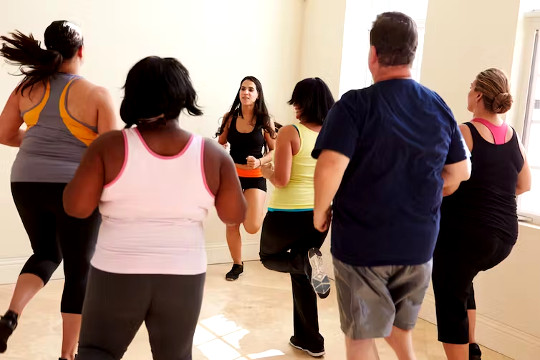Every working day, GPs in the UK diagnose almost 1,000 people with type 2 diabetes. It is one of the commonest and most expensive diseases. What most people don’t know is that with a bit of hard work, it is possible to become non-diabetic again.
Formerly limited to older people, type 2 diabetes is now common in younger, fatter, people in their 40s and 50s, and even younger ones who are severely obese. Some people are spared, but the epidemic of diabetes has closely followed the epidemic of overweight and obesity. The key is where the excess fat is stored: if it can no longer be stored under the skin, and starts to accumulate in the liver and pancreas, these organs malfunction to cause diabetes.
The conventional conversation with a GP used to go: “Your blood test confirms that you have diabetes.” And then, “Don’t worry, it’s mild diabetes and we can treat it with tablets.” That advice is horribly wrong.
Patients deserve a fuller, more honest explanation: “You are right to be concerned. Type 2 diabetes is a ghastly, progressively destructive disease. It leads to disabling painful complications, as the main cause of amputations, blindness and kidney failure, and contributes importantly to heart disease and dementia. Oh, and the tablets reduce your blood glucose but allow the disease to progress, so you will still die five to eight years younger.”
Get The Latest By Email
We now hope to add: “But if we can help you with an evidence-based programme to lose a substantial amount of weight, often 15kg or more, there’s a good chance you will no longer be diabetic.”
Losing 15kg often does the trick
A growing number of people who develop type 2 diabetes have decided that they don’t want to live with this stigmatising disease or wait for its complications. By one means or another they have managed to lose weight – commonly 15kg or more – so they become non-diabetic again. They no longer carry the disease-label, or need the tablets, or pay the increased insurance premiums. Their blood pressure comes down, sleep apnoea (a cause of depression) improves and they often feel younger and more energetic.
Knowing this, research teams in Glasgow and Newcastle are running the Diabetes Remission Clinical Trial (DiRECT). It will establish how many people with type 2 diabetes can lose 15kg or more and achieve a remission, and for how long.
More than 300 people with type 2 diabetes, in Scotland and Tyneside (England) are involved. The treatment uses a well-established weight-management programme, which involves a 12-week total diet replacement phase, followed by stepped, structured food reintroduction phase, followed by a weight maintenance phase. This programme is delivered entirely within routine NHS primary care, so the results should be applicable to almost all people with the disease.
It is designed to find out if over one in five people with type 2 diabetes can get rid of their diagnosis (off all anti-diabetes drugs) after one year. That sort of number would have massive implications for healthcare spending.
In principle, if people are no longer diabetic, they can’t get the complications of diabetes. However, at present, diabetes researchers and healthcare planners can’t get reliable information to confirm that, because doctors are not recording the remissions by using the appropriate code in national statistics, in the UK, US and elsewhere.
In a recent article in the BMJ, my colleagues and I called on UK doctors to start to record when their patients achieve remission of diabetes.
GPs in the UK are rewarded with practice payments for recording that they have made a diagnosis of diabetes, and then for prescribing drugs for it. Recording remission, however, is extremely rare, perhaps because doctors fear that their payments might cease. In fact, if the correct code is used, those payments will continue, but they actually deserve a much greater reward if they can help their diabetic patients achieve remission, and save the NHS the costs of the drugs and the complications.![]()
About The Author
Mike Lean, Chair of Human Nutrition, University of Glasgow
This article is republished from The Conversation under a Creative Commons license. Read the original article.
books_nutrition








